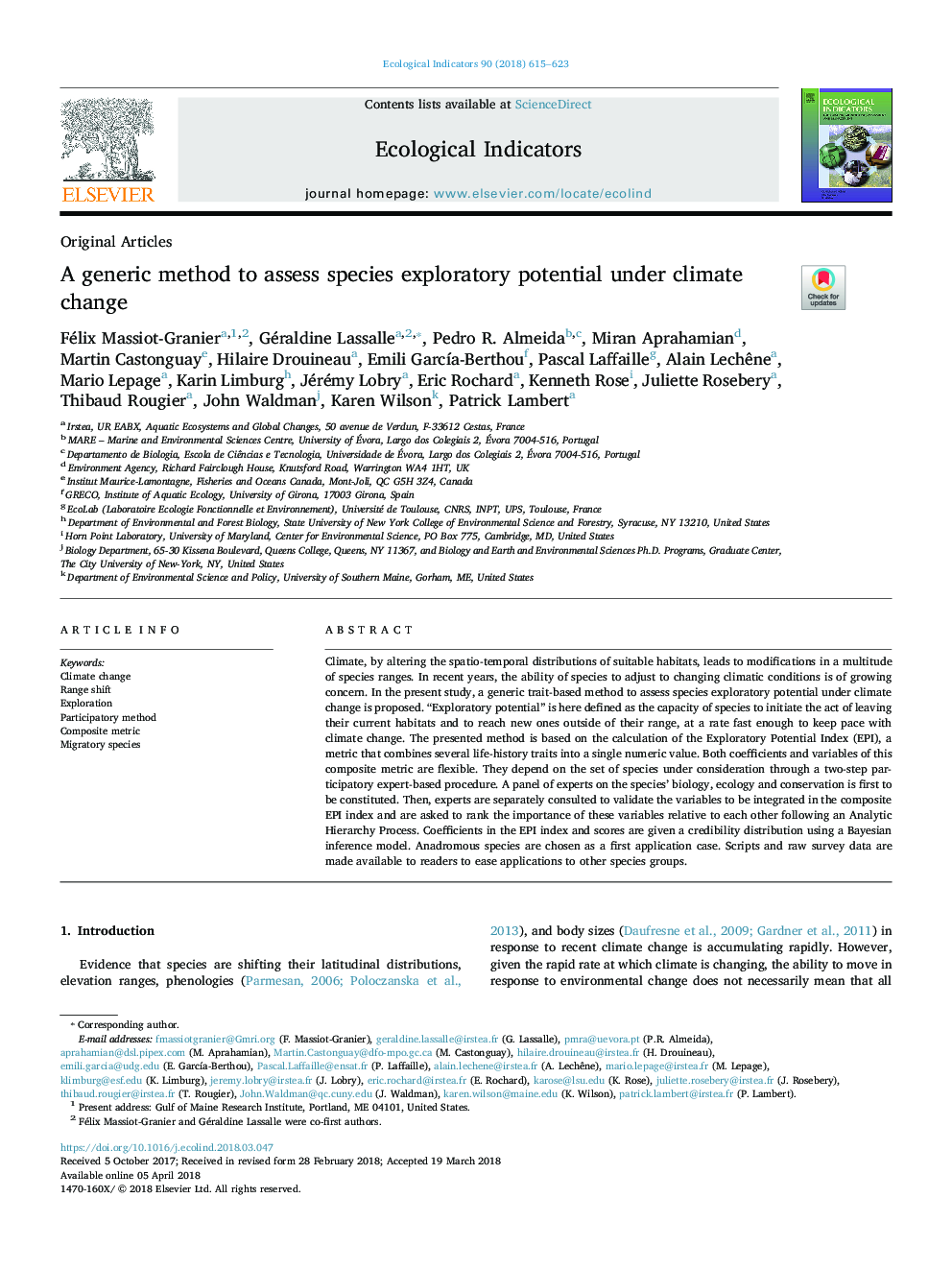| Article ID | Journal | Published Year | Pages | File Type |
|---|---|---|---|---|
| 8845502 | Ecological Indicators | 2018 | 9 Pages |
Abstract
Climate, by altering the spatio-temporal distributions of suitable habitats, leads to modifications in a multitude of species ranges. In recent years, the ability of species to adjust to changing climatic conditions is of growing concern. In the present study, a generic trait-based method to assess species exploratory potential under climate change is proposed. “Exploratory potential” is here defined as the capacity of species to initiate the act of leaving their current habitats and to reach new ones outside of their range, at a rate fast enough to keep pace with climate change. The presented method is based on the calculation of the Exploratory Potential Index (EPI), a metric that combines several life-history traits into a single numeric value. Both coefficients and variables of this composite metric are flexible. They depend on the set of species under consideration through a two-step participatory expert-based procedure. A panel of experts on the species' biology, ecology and conservation is first to be constituted. Then, experts are separately consulted to validate the variables to be integrated in the composite EPI index and are asked to rank the importance of these variables relative to each other following an Analytic Hierarchy Process. Coefficients in the EPI index and scores are given a credibility distribution using a Bayesian inference model. Anadromous species are chosen as a first application case. Scripts and raw survey data are made available to readers to ease applications to other species groups.
Related Topics
Life Sciences
Agricultural and Biological Sciences
Ecology, Evolution, Behavior and Systematics
Authors
Félix Massiot-Granier, Géraldine Lassalle, Pedro R. Almeida, Miran Aprahamian, Martin Castonguay, Hilaire Drouineau, Emili GarcÃa-Berthou, Pascal Laffaille, Alain Lechêne, Mario Lepage, Karin Limburg, Jérémy Lobry, Eric Rochard, Kenneth Rose,
